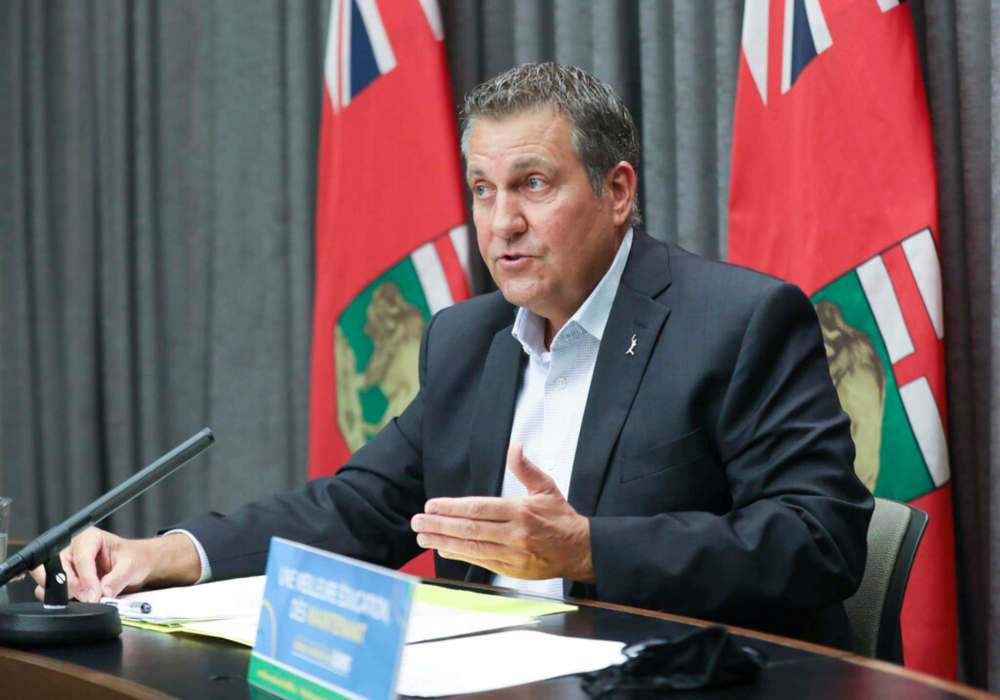Province begins process of overhaul education funding model
.
Advertisement
Read this article for free:
or
Already have an account? Log in here »
To continue reading, please subscribe:
Monthly Digital Subscription
$0 for the first 4 weeks*
- Enjoy unlimited reading on winnipegfreepress.com
- Read the E-Edition, our digital replica newspaper
- Access News Break, our award-winning app
- Play interactive puzzles
*No charge for 4 weeks then price increases to the regular rate of $19.00 plus GST every four weeks. Offer available to new and qualified returning subscribers only. Cancel any time.
Monthly Digital Subscription
$4.75/week*
- Enjoy unlimited reading on winnipegfreepress.com
- Read the E-Edition, our digital replica newspaper
- Access News Break, our award-winning app
- Play interactive puzzles
*Billed as $19 plus GST every four weeks. Cancel any time.
To continue reading, please subscribe:
Add Free Press access to your Brandon Sun subscription for only an additional
$1 for the first 4 weeks*
*Your next subscription payment will increase by $1.00 and you will be charged $16.99 plus GST for four weeks. After four weeks, your payment will increase to $23.99 plus GST every four weeks.
Read unlimited articles for free today:
or
Already have an account? Log in here »
Hey there, time traveller!
This article was published 19/11/2021 (1484 days ago), so information in it may no longer be current.
Manitoba is reviewing how it pays for public education, with a goal of putting in place a new formula to fund its 37 public school divisions ahead of the 2023-24 academic year.
The province announced Thursday plans to overhaul the current education funding model, which was implemented in 2002-03, so it is more equitable.
“Currently, there’s winners and losers in the system. We’re hoping we can find an equitable formula funding model. We don’t want any students to be negatively impacted,” Education Minister Cliff Cullen said during a phone interview.

Cullen said the review — the first of its kind in 20 years — was prompted by the K-12 commission, which called for a funding formula audit “to ensure an equitable distribution of education funding across the province” in its 2020 report.
The existing funding model sees provincial monies distributed based on division population, transportation need and building expenses, among numerous line items and various grants. Boards also rely on revenue from property education taxes within their borders — a sum that varies between regions because it reflects the assessed value of area housing and businesses — to draw up annual budgets.
In total, the education system cost upwards of $2.9 billion last year.
The K-12 commission was not tasked with delving into the technical details of funding, but its authors wrote: “We would be negligent if we did not point out that this is an issue of perceived unfairness.”
Members of the public who participated in the 2019 review raised concerns about the equity of resources in rural, remote and northern regions. Some suggested the province reduce or eliminate its reliance on education property taxes and consider setting a single provincial mill rate.
Brian O’Leary, superintendent of the Seven Oaks School Division, is among critics who have long called on the province to address inequality in the formula because it relies on varying mill rates and an inadequate equalization equation to address them.
“Equalization is not adequate or effective. Right now, it’s not even a half-measure,” said O’Leary, adding the division is keen to participate in the review.
Among those who have been invited to participate in the team that will oversee the review are: the respective associations of school boards, superintendents, school business officials; Manitoba Teachers’ Society; representatives from the First Nations school system; the group that represents parent councils; and Association of Manitoba Municipalities.
While the president of the Manitoba School Boards Association welcomed the “overdue” review, he said boards have immediate fiscal concerns.
“There is a much more immediate need for funding conversations in the here and now in the current fiscal year, because of pandemic expenses and staff settlements,” said Alan Campbell, a trustee in the Interlake region.
Campbell said there are questions about how annual funding will address spiking fuel prices and inflation at a time when the province is touting the phase-out of the property education tax.
“This is a classic case of cut the cheque first, ask questions later,” said Nello Altomare, the NDP education critic.
Altomare criticized the Progressive Conservative government Thursday for not reinstating education funding, noting the province’s financial contribution to K-12 education has dropped more than four per cent since 2016.
In response to criticisms, Cullen said the province has pledged to pick up funding for schools when education property tax is eliminated. He also touted the $1.6 billion in additional funding the province has earmarked for education over the next four years.
maggie.macintosh@freepress.mb.ca
Twitter: @macintoshmaggie

Maggie Macintosh reports on education for the Winnipeg Free Press. Funding for the Free Press education reporter comes from the Government of Canada through the Local Journalism Initiative.
Our newsroom depends on a growing audience of readers to power our journalism. If you are not a paid reader, please consider becoming a subscriber.
Our newsroom depends on its audience of readers to power our journalism. Thank you for your support.



